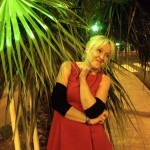In Finland, in municipalities Espoo, Helsinki, Hyvinkää, Hämeenlinna, Järvenpää, Kerava, Mäntsälä, Nurmijärvi, Sipoo, Turku and Vantaa, we make the progressive feedback a permanent practice. The observer training starts in January 2017 and the building and testing of the needed infrastructure and tools starts immediately. From September 2017 onward, every day 180 randomized observations is conducted in different municipalities. When we merge the observation data with skills and learning environment evaluations, we get a real time feedback of the essential processes of early childhood education in Finland. This gives us an opportunity to get hold of these processes and change them in a conscious way. Furthermore, we get instant feedback about the effects of the development work almost in real time, which can be shared and further developed by the community and educators.
Monthly Archives: April 2016
Funding for study of multicultural children
 Alli Paasikivi foundation has awarded the 2016 grants. Outi Arvola received funding (21 000 euro) for her research, where she studies the Orientation project results from the point of view of the multicultural children and their families. At the moment, Outi is working with the support needed for different families with a multicultural background and probably the multicultural children’s everyday experiences are the next topics of her research. Congratulations for Outi! The funding is an essential help in accomplishing the needed deepness and validity of this timely topic.
Alli Paasikivi foundation has awarded the 2016 grants. Outi Arvola received funding (21 000 euro) for her research, where she studies the Orientation project results from the point of view of the multicultural children and their families. At the moment, Outi is working with the support needed for different families with a multicultural background and probably the multicultural children’s everyday experiences are the next topics of her research. Congratulations for Outi! The funding is an essential help in accomplishing the needed deepness and validity of this timely topic.
Pedagogical Documentation in Early Years
Kati Rintakorpi’s and Jyrki Reunamo’s article Pedagogical documentation and its relation to everyday activities in early years has been accepted for publication in the Early Child Development and Care journal. Pedagogical documentation was related to participative, drama education, media-education and deeply processed pedagogical planning. It is remarkable that the pedagogical documentation evaluated by the team educators was positively correlated with the independently measured observation. The observers and evaluators had no knowledge and access to the other measurement data. Thus, the correlation between learning environment evaluation and observation must describe some real connections between pedagogical documentation and children’s everyday activities (we have to consider intermediate variables). For example, pedagogical documentation was positively connected with children’s increased happiness, joy and satisfaction. In these groups also children’s involvement in the activities tended to be higher. These results are among the first statistically significant results describing the connection between pedagogical documentation and children’s everyday experiences.